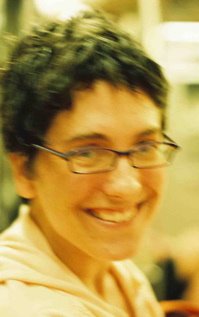The Day of Talking About Dying
It has been a month since school started! This week we had a mini-conference at the U of I about hospice. There were four presentations that covered the basics of hospice, hospice for children, palliative care, and the spiritual needs of hospice patients. One of the presenters mentioned about the work of Dr. Ira Byock, whose book, "Dying Well," I read last summer and really appreciated. Experiencing hospice first hand was definitely one of the reasons I decided to go to nursing school. What I loved about Dr. Byock's book, and what draws me to hospice, is that the end of life holds such potential for emotional fulfillment, for peace, for coming to the end of your life on your terms. I think it is an opportunity that is denied to a lot of people. I have a hard time thinking about all of the people who die alone, in the middle of confusion, or after a violent and unsuccessful attempt at resuscitation, without knowing what is happening to them. Obviously, some deaths are unavoidably sudden. But the vast majority of deaths in this country are the result of chronic illness, and can be managed and can happen painlessly and with the active participation of the patient and their family, with the right planning and support.
The somewhat recent "death panel" debates made me furious and really sad, precisely because it ended up denying people the opportunity to do the kind of planning and have the kind of support that I'm talking about. In essence, there was a proposal in the now-stalled health care reform bill that would have included a measure to cover the cost of appointments for any patients who wanted to discuss end-of-life options with their doctors. It was pretty much the most innocuous proposal in the world: hey, wouldn't it be nice to make it free for people to talk to their doctors about how they wanted their end-of-life care to go? That was it. And, as anyone who has had to deal with a family member's death knows, these are the kinds of conversations that have the potential to save an infinite amount of guilt and uncertainty for the family members left to make decisions about their loved one once they become incapacitated. That measure ended up being removed from the bill after the "death panel" debacle, incited in large part by Sarah Palin, about whom I have nothing nice to say. At all. At. All.
Moving on. I am heartened when I hear about stories like this one about successful end-of-life planning. The idea behind hospice and this kind of planning is to make sure that everyone has the opportunity to make choices about how they die. Because, and our entire culture does not seem to want to acknowledge this, we will all die. You. Me. All going to die. But we are luckier than the vast majority of people who have ever lived because we have the chance not to die in pain, and to die with some amount of awareness of and control over our last days. It boggles my mind to think that some people would want to deny us this choice for their own political gain - I can't think about it without feeling a little horrible about the world. So I won't! Suffice it to say that I was really glad to get some more information about hospice this week, and to think about being involved in hospice in the future.
P.S. - The *only* good thing to come of Sarah Palin is Tina Fey's Sarah Palin impression.

